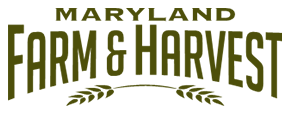Teacher Resources
In this interactive lesson, students will learn about the growth, composition, history, and multiple uses of corn for humans and animals. Students will learn how corn can be transformed into various useful products.
This interactive lesson is aligned to:
Module Information
- Grade Band: 6 - 8
- Focus Standard: Structure and Properties of Matter, Human Impacts
- Topic: Physical Science, Earth and Space Sciences
- Completion Time: 30 - 40 minutes
- Vocabulary: Visit the Glossary page for definitions of key vocabulary in this module.
Related Standards
Next Generation Science Standards
-
MS-PS1-3 Structure and Properties of Matter
Gather and make sense of information to describe that synthetic materials come from natural resources and impact society. - MS-ESS3-4 Human Impacts
Construct an argument supported by evidence for how increases in human population and per-capita consumption of natural resources impact Earth’s systems.
Maryland College and Career Ready (MCCR) Standards for Disciplinary Literacy
Reading Standards for Literacy in Science and Technical Subjects:Integration of Knowledge and Ideas
- MCCR Anchor Standard 7: Integrate and evaluate content presented in diverse media and formats, including visually and quantitatively, as well as in words.
- RST.6-8.7. Integrate quantitative or technical information expressed in words in a text with a version of that information expressed visually (e.g., in a flowchart, diagram, model, graph, or table).
Maryland Environmental Literacy Standard
(2) Human Dependence on Earth Systems and Natural Resources.- Environmentally literate students construct and apply understanding of the environmental impact of human activities on Earth’s systems and resources.
Teacher Tips
- Using this graphic organizer students can identify a type of corn and the products that are made from it.
Products made from corn Graphic Organizer
Additional Resources
- See the work that goes into preparing a cornfield for planting
Maryland Farm & Harvest Episode 901
References
Farm ProgressUniversity of Iowa
Encyclopaedia Britannica
Iowa Corn Growers Association
National Center for Agricultural Literacy
North Dakota State University
Guinness World Records
U.S. Deparment of Agriculture
Using This Site
This lesson is built for use on classroom computers and tablets. If you have access to a desktop computer, laptop, tablet or an interactive whiteboard in your classroom, you may complete the lesson in your classroom. Otherwise, you will need to schedule time to use your school's computer lab. For technical specifications, see below.
Some activities on this site may include videos and narration, so you may want to have headphones available for students working at individual stations. For best results in viewing the videos and interactives, you should have a high-speed, stable Internet connection.
This lesson may contain PDFs for students to complete. They can print the PDFs and fill them out by hand, or download the files and fill them out on the computer. Most or all portions can be filled out online. Please check with your Instructional Technology Specialist for instructions on downloading the PDF. (Note that to complete the PDFs on the computer, you will need a viewer, such as Adobe Reader, that supports forms.)
Technology
This site is an Internet-based activity, and it was built to run on the following computer operating systems and browsers:
- Windows 7 or Newer: IE 8, 9, 10, 11; Current version of Chrome; Current version of Firefox
- Mac OS 10.7 or Newer: Current version of Safari
- iPad2/iOS6 or Newer: Current version of Safari
- Android 4.0 or Newer: Current version of Android browser
- Chromebook: Current version of Chrome
Users running Internet Explorer 8 will not be able to use the highlighter tool. Instead, teachers should consider partnering students for a brief discussion.
Visit the Accessibility page for detailed information on the site's accessibility features.


